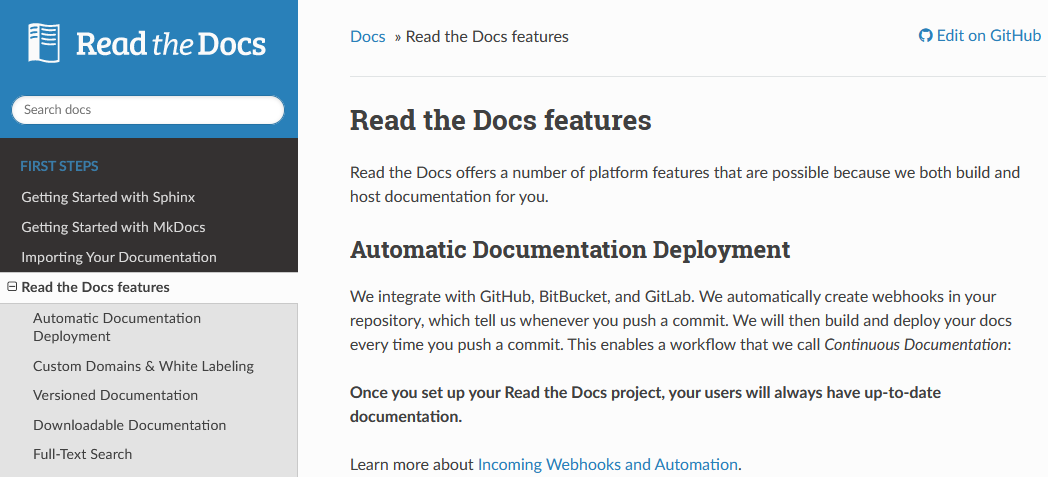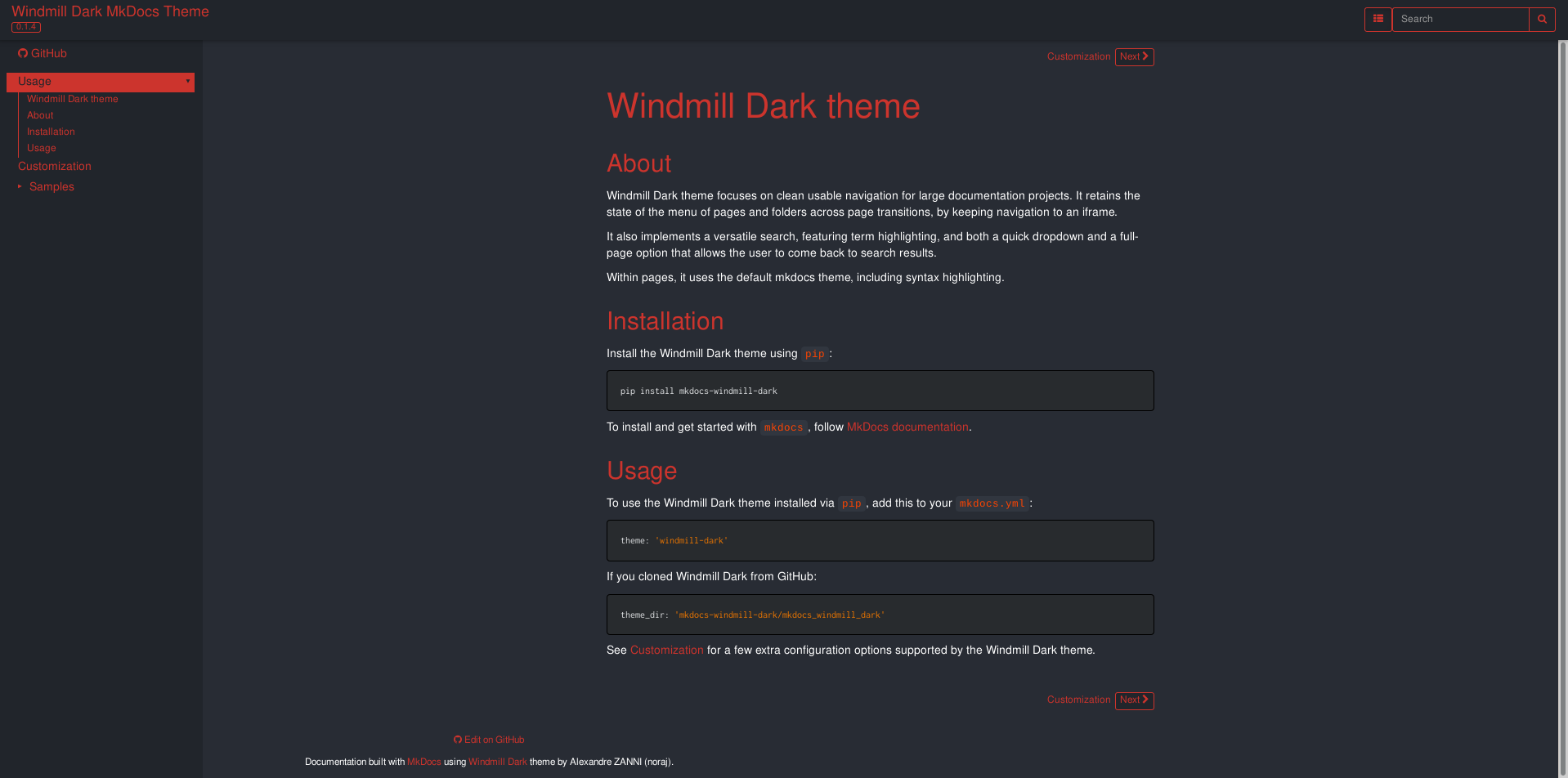Read The Docs
Read The Docs (RTD) is a documentation generator that utilizes either Sphinx or MkDocs to generate the documentation site and theme, depending on your choice. The RTD GitHub houses the configurations and files that generates the Official Website. This provides a good example of the many features RTD offers, and allows you to step through configurations in a more feature-rich and complete setup.
Since there are different choices for the backend static site generator, the deployment procedure is different depending on which one you choose. Below, we will cover deploying Read The Docs with Sphinx and MkDocs. These two sections are each entirely different deployments of RTD, where the difference is only the Backend Static Site Generator that is used to build your documentation.
Alternatively, you can simply sign up on the RTD official website and allow them to host the documentation for you by linking a repository to your user account and following the Quick Start Instructions. Since this is nearly turn-key, we won't cover deploying RTD this way.
There are also two independent versions of RTD, one community and one for business related documentation that also supports private repositories and other security features. When visiting https://readthedocs.org, we are viewing community version. When visiting https://readthedocs.com, we are viewing the business version.
For the below documentation, we will be using the Community Version of Read The Docs since the business version is Subscription Based.
Sphinx
Need a place to host your Sphinx docs? readthedocs.org hosts a lot of Sphinx docs already, and integrates well with projects' source control. It also features a powerful built-in search that exceeds the possibilities of Sphinx' JavaScript-based offline search. - Sphinx
MkDocs
Deploying MkDocs with RTD is as simple as first deploying a MkDocs instance, and then importing this documentation into RTD. The RTD documentation provides instructions for Getting Started with MkDocs, which outlines the process below.
Install
MkDocs supports Python versions 3.5, 3.6, 3.7, 3.8, and pypy3. If you have and use a package manager (such as apt-get, dnf, homebrew, yum, chocolatey, etc.) to install packages on your system, then you may want to search for a "MkDocs" package. If your package manager does not have a recent "MkDocs" package, you can still use your package manager to install "Python" and "pip". Then you can use pip to install MkDocs. - MkDocs Official Documentation
The quote above seems to suggest the preferred method for installation is pip, though it is possible to use your package manager. To make these instructions more portable, I'll only cover mkdocs installation using pip.
Deploying MkDocs with RTD is as simple as first deploying a MkDocs instance, and then importing this documentation into RTD. The RTD documentation provides instructions for Getting Started with MkDocs, which outlines the process below.
sudo apt update && sudo apt upgrade
sudo apt install python-pip -y
pip install --upgrade pip
sudo pip install mkdocs
Configuring Man Pages
If needed, MkDocs provides man pages that can be installed with click-man by running the following commands
An explanation on why the man pages are not installed automatically with pip install mkdocs is described within the click-man GitHub README
pip install click-man
click-man --target path/to/man/pages mkdocs
Following the Man Pages Index Guidelines we can install the man pages to the appropriate section using the following command
click-man --target /usr/share/man/man1 mkdocs
Now we can see that the man pages for mkdocs have been installed and reference them as needed directly within our terminal -

Themes
MkDocs is very themeable, you'll notice with the screenshot below that the Windmil Theme is quite different from the readthedocs theme used on the RTD Documentation.
Plugins
Mkdocs supports plugins which extend the functionality in more specific use cases. Check the GitHub Wiki for a complete list of plugins.
This feature came from a request for multiple projects documentation within a single MkDocs instance - Issue #265. Once plugins were added to MkDocs, Spotify/mkdocs-monorepo-plugin provided a plugin to support this feature, allowing for multiple documentation folders within a single MkDocs.


